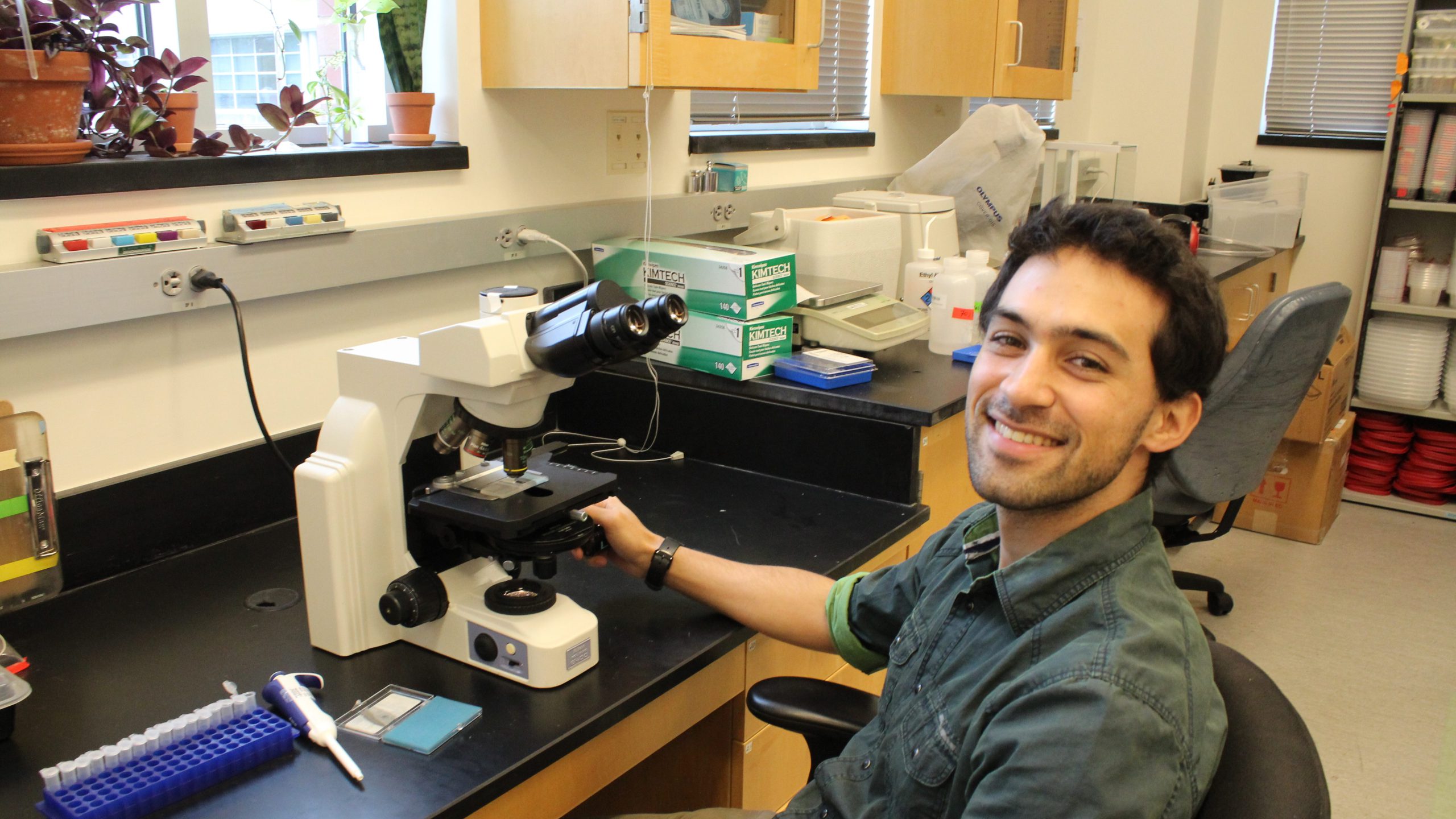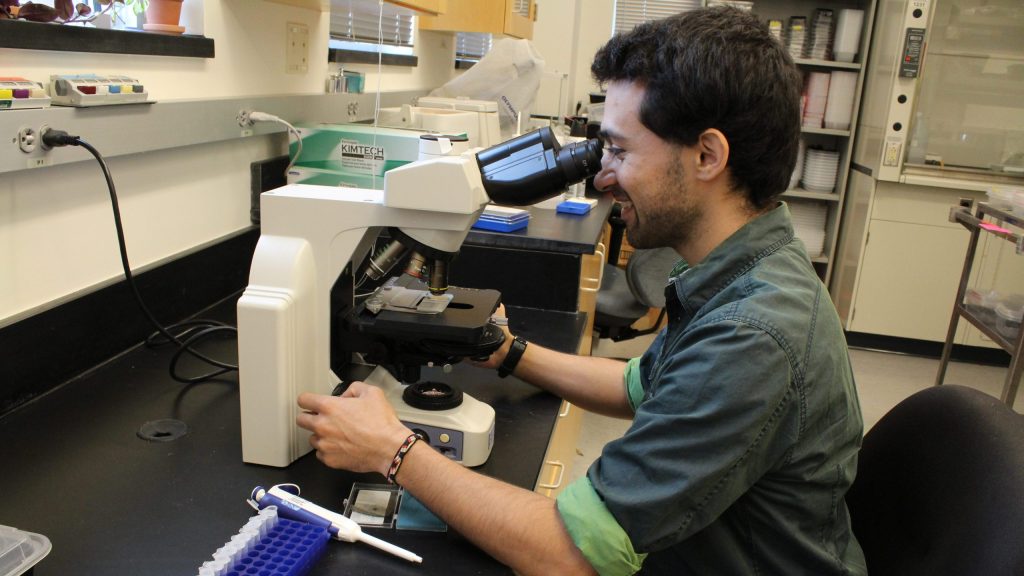Researcher Spotlight – Mario Simon Pinilla-Gallego

2019-20 Global Change Fellow
PhD Student, Department of Applied Ecology
Advisor: Dr. Rebecca Irwin
Every year the Southeast Climate Adaptation Science Center funds a multi-disciplinary cohort of Global Change Fellows representing colleges across NC State University. Here are some highlights about 2019-20 Fellow, Mario Simon Pinilla-Gallego, and the applied research he’s conducting.
About You
What do you study?
I study the transmission dynamic of a bumble bee gut pathogen (Crithidia bombi). This pathogen uses flowers to infect new individuals and I’m interested in understanding how the morphology of different flowers affects the likelihood of transmission.
What (or who) influenced you to go into this field of study?
As human population grows, we will need to produce more food, and for many fruits and vegetables, this can be achieved by increasing crop pollination. However, in the last decade, the population of many managed and wild populations have decreased, in part due to the spread of parasites and diseases. This intersection between food security and the study of the insect’s disease ecology really piqued my interest.
What do you think is the most pressing issue related to global change?
I think adaptation to global change is one of the most pressing issues, as changes are happening so fast that many communities are not having time to make the changes necessary to adapt to new conditions.
What is your dream job?
Being a researcher at a University or research institution.
About Your Research

What results are you finding?
I’m finding that the morphology of different types of flowers can reduce the time the pathogen stays alive on them, as well as the likelihood of transmission to a new individual. We are also finding that when only a few individuals bring the pathogen from the environment to the colony, the within colony transmission is really low, but if the number of bees bringing back the pathogen is high, the pathogen will spread in the colony really fast.
Who will benefit from your research?
The bees! If we identify flowers that don’t transmit the pathogen very often, we could use them in gardens and pollinator’s habitat, to provide them with resources without increasing the risk of disease transmission. In the long term, having a strong pollinators population will ensure food production, benefiting farmers and the public.
How can your research be used to inform management decisions?
If we know which flower species decreases pathogen transmission, we can recommend flower mixes to be used in gardens and pollinators habitats. We can also advise companies that produce commercial bumble bee colonies so they can better control pathogens in their facilities, avoiding a spillover of pathogens to wild populations.
How would you describe your research to a 3rd grader?
I study how bee germs manage to pass from one bee hive to another.
About Your Global Change Fellow Experience
How do you expect the SE CASC Global Change Fellows Program to impact you and your work?
The SE CASC Global Change Fellows Program allows me to explore many global change issues and the approaches that we can take to address those problems. In that way, I can build a toolbox of approaches and a network of connections that would allow me to address challenges with interdisciplinary approaches.
What has been the most rewarding part or your favorite part of being a SE CASC Global Change Fellow?
Getting to know the other fellows and learn about the amazing, diverse research that they do.
What advice would you give to a student that is interested in getting involved in your field?
Research can be challenging at times, but it also really rewarding when you finally accomplish your goal.
